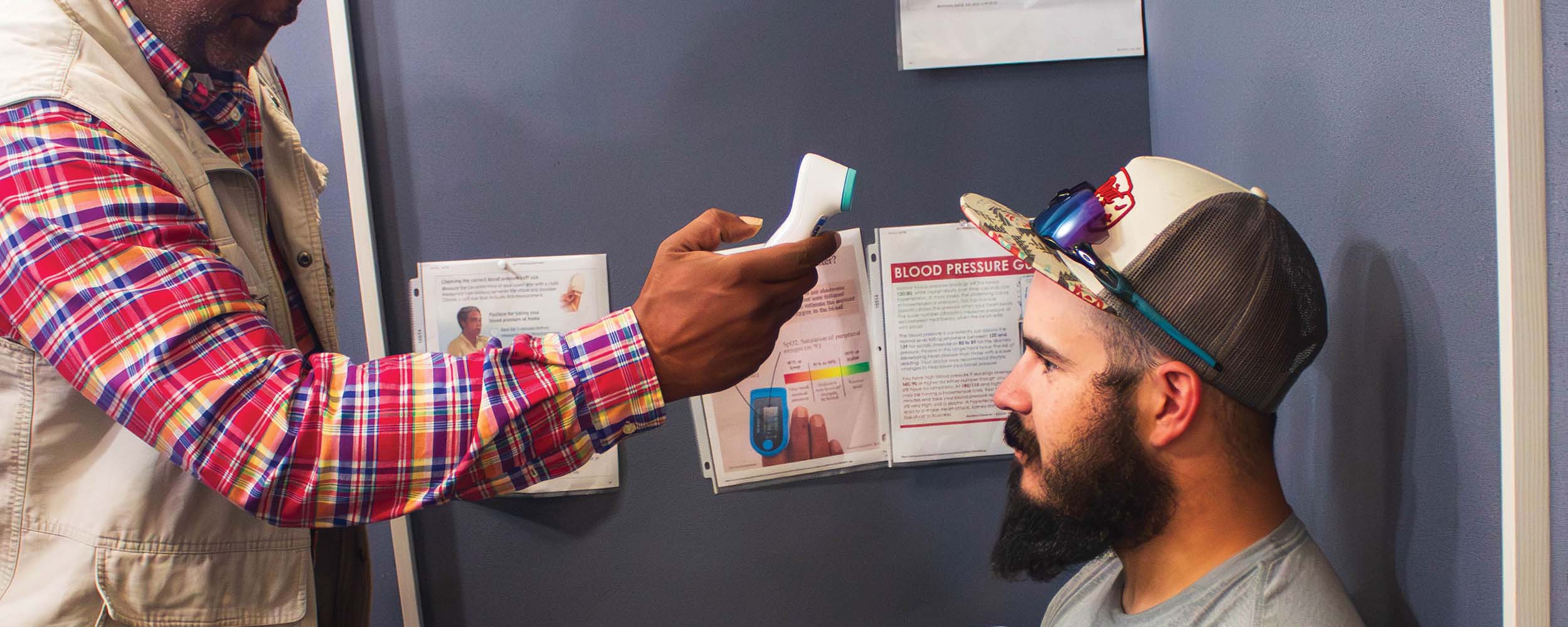
High-Tech Wellness
Friday, January 5, 2024
Media Contact: Sophia Fahleson | Digital Communications Specialist | 405-744-7063 | sophia.fahleson@okstate.edu
To serve people in Oklahoma communities who do not have access to adequate health care, Oklahoma State University is bringing telehealth booths to nearby libraries.
“The idea of this program came from collaborating with librarians, educators and people in rural communities who have trouble seeking health care when they need it,” said Brian Whitacre, OSU Extension specialist for rural economic development.
Whitacre led the effort to seek funding for the telehealth booths.
The project’s funding came from $120,000 in grants from the American Rescue Plan Act, the Oklahoma State Department of Health and the Oklahoma Department of Libraries.
The grant budgets half toward the booths, and the rest toward equipment needed inside the booths and the library employees who can help people use it, Whitacre said.
“It can be difficult for rural residents to connect with health care services they need,” Whitacre said.
The program’s first telehealth booth opened Aug. 3, 2023, in the Benson Family Media Center within the 112-year-old Okemah Public Library in Okemah, Oklahoma.
Cliff Peters, the library’s media center and telehealth technician, said in the two months since the telehealth program began, the booth has had 15 medical appointments.
“Word is spreading, though,” he said, “and I expect an uptick in appointments very soon due to more people knowing about the booths.”
Each booth is stocked with equipment to measure patients’ vital signs as well as a digital otoscope with a camera to check for ear infections and a digital hand dynamometer, which measures grip strength, he said.
Additionally, some of the medical instruments are Bluetooth-enabled, allowing doctors to receive quick results.
Use of the telehealth booth is free; however, patients pay for the appointment as if they were in person, Whitacre said.
After each patient appointment, the entire booth and equipment are sterilized through UV-light.
The soundproof telehealth booths allow private, one-on-one connections between the doctors and the patients, Whitacre said.
“Our small community of Okemah is an hour’s drive to Tulsa or Oklahoma City,” Peters said. “We only have one practicing physician and two advanced registered nurse practitioners to provide medical services to our residents who are not Native Americans. Having the option of a telehealth doctor’s appointment is beneficial to our residents countywide.”
The project’s focus is to improve the quality of life for people who live in rural communities, Whitacre said.
A second booth opened in Tulsa in 2023, and three other booths opened in late November in libraries in Hinton, Atoka, and Broken Arrow.
Oklahoma Complete Health, an Oklahoma City-based health care insurance organization with a focus on rural communities, supported the project and helped with selecting and equipping the booths. The organization has remained on board to advise on scheduling with medical providers.
“Digital literacy is a major barrier to using virtual care,” said Doug Olivo, Oklahoma Complete Health community engagement director.
To improve accessibility, the grant provides funding for digital navigators, or people trained to help patients use the booths’ technology.
The digital navigator is key for virtual visits, he said, not only for the patients but also the libraries hosting the booths. Library budgets are tight, Olivio added, and library directors already perform multiple duties.
“These telehealth booths are going to create much-needed access to health care in historically underserved areas,” Olivo continued, “resulting in better health outcomes for potentially thousands of Oklahomans.”
Story by: Melanie Carroll | Cowboy Journal
